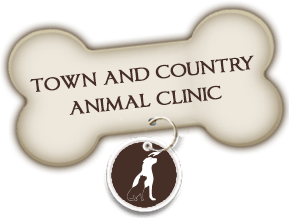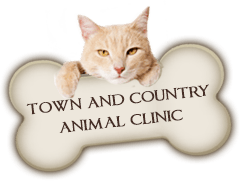ALLERGIES
Did you know that our pets can suffer from allergies? They can! Essentially anything that a human can be allergic to, so can our pets; even other animal fur!
Common Allergens for our pets can include (but not limited to):
Pollens (grasses, weeds, and trees)
Mold spores (indoor and outdoor)
Malassezia, a type of yeast found on the skin of animals
House-dust mites
Animal dander
Insects (bees, fleas, etc)
Food
It is common for a patient to have allergies or sensitivities to multiple allergens, often incorporating indoor, outdoor and food.
The major difference between animals and people when it comes to allergies is that while people generally exhibit their allergies through sneezing, running eyes and respiratory symptoms, pets typically exhibit their allergies through itching, licking and chewing, skin and ear infections, fur loss and more.
While any breed, pure-bred or mixed, age, sex or species can develop allergies, some of the most commonly affect dog breeds include the Boston Terrier, Cairn Terrier, English Bulldog, English and Irish Setter, Lhasa Apso, Miniature Schnauzer, Pug, West Highland Terrier, and Golden Retriever. In cats; no single breed appears to be more likely to develop allergies. Typically patients begin to exhibit allergies between the ages of 1 year and 3 years however allergies can manifest themselves at anytime in a patient’s life.
COMMON SIGNS AND SYMPTOMS
- Itching or “Pruritis”-exhibited by scratching, licking, chewing or rubbing
- Most skin changes caused by self-induced trauma (scratching, rubbing, licking, biting at skin)
- The face, legs, armpits, tail base and under the belly are common areas to be itchy
- Signs may be seasonal initially
- Recurring skin and/or ear infections (may be bacterial and/or yeast infection)
- May have temporary response to steroids
- Signs progressively worsen with time (may be months or years)
- Lesions—vary from none to broken hairs or saliva discoloration of the hairs (giving a rust-brown appearance to light colored hair) to reddened skin; small, raised skin lesions (known as “papular reactions”); dried discharge on the surface of a skin lesion (known as a “crust”); hair loss (known as “alopecia”); darkened skin (known as “hyperpigmentation”); thickening and hardening of the skin, usually associated with hyperpigmentation (known as “lichenification”); and excessively oily or dry scaling of the skin (known as “seborrhea”)
- Inflammation of the moist tissues around the eye (known as “conjunctivitis”) may occur
My dog is 5 years old, why are we seeing allergic reactions now?
Allergies typically worsen over time and as the patient ages they can acquire new allergies. Think of your pets allergies and ability to “combat” them as a two sided scale. On the left side of the scale is the ability to combat the allergies, on the right side of the scale is the number of allergies. As the number of allergens for that pet increase, the body’s ability to combat the allergic response decreases. When this load of allergens become too high for the body, we begin to see allergic response symptoms such as those listed above.
My Pet is itching, licking and scratching, she must have allergies.
Not necessarily. There are a variety of reasons your pet may be itching, chewing or licking. To name a few, allergies, boredom, foreign body (such as a sliver), wounds and ectoparasites (such as fleas) could be the culprit of your pets symptoms. A full physical examination and history with your veterinarian is recommended to determine your pets cause of itching.

The first step with any patient exhibiting signs or symptoms pointing to allergies is to perform a full physical examination with the veterinarian where a full history will be taken. From there, the veterinarian will make their recommendations for your pet. There are multiple aids in helping relieve your pet’s allergies and symptoms. Often a multimodal approach is taken; medications, diet and avoidance of the allergens if possible.
Common medication treatments can include steroids, antihistamines and cyclosporine as recommended and prescribed by the veterinarian.
Antihistamines: Over the counter antihistamines such as Benedryl or Reactine can help those patients with mild allergies. They are not always effective with every patient, with their efficacy reaching only up to 30% of patients depending on the antihistamine and patient. They are safe to use long term.
Steroids: Steroids are often a short term, inexpensive “quick fix”; relieving the patients symptoms quickly to break the “itch-scratch” cycle. Overtime, with long-term use, they can have a negative impact on organ function.
Cyclosporin(Atopica) is effective in controlling itchiness associated with long term atopic dermatitis (allergic skin disease). Many pets can be adequately controlled with less frequent dosing over time. This is a more expensive medication however are safe to use long-term and a safer option than steroids long-term.
Allergy testing is another approach for patients with worsening allergies, severe allergic responses, not responsive to medication treatment and clients wishing to pursue further diagnostic and treatment for their pets allergies. Allergy testing allows us to determine which food ingredients we need to avoid, as well as create an allergy serum to be injected into the patient (just as with human allergy injections, our patients would receive weekly then monthly injections).
The most important aspect of your pets allergy relief is your veterinary-patient relationship. Proper examinations, evaluations and follow up of your pet and their progress can help relieve the discomfort of allergies for your pet and control their long-term relief.
If you have any questions about your pets health always consult with your veterinarian.
519-250-0099
Town And Country Animal Clinic










